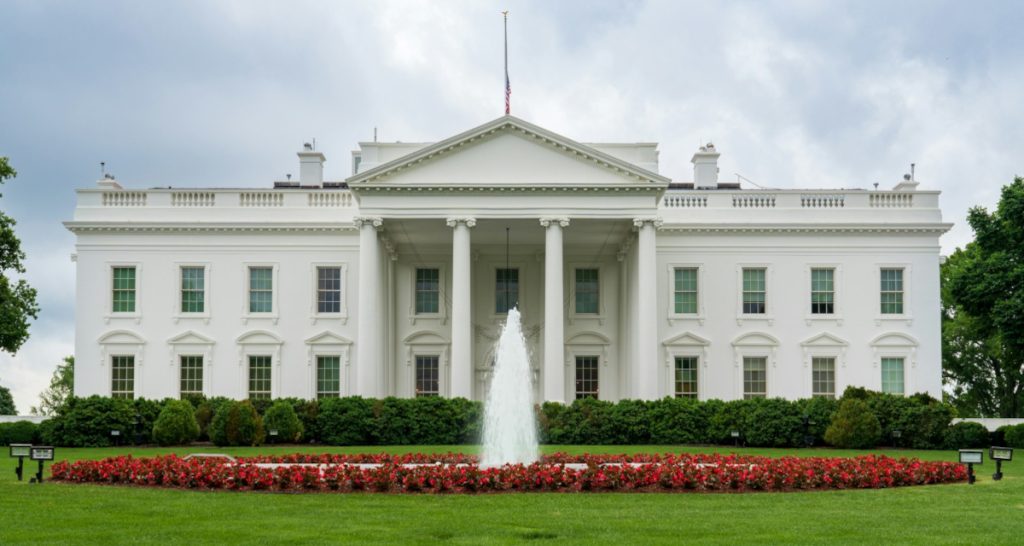
Photo Credit: Tomasz Zielonka
The White House has officially unveiled “America’s AI Action Plan,” which is being touted as a “roadmap to victory” in the race for global artificial intelligence dominance.
Spanning nearly 30 pages and encompassing north of 90 policy actions, that plan coincided with a trio of executive orders. And while there are a substantial number of moving parts here, both the AI Action Plan and the orders largely concern non-IP topics and artificial intelligence’s bigger-picture significance.
(Just for reference, one of the orders is working towards “preventing woke AI” in government, the second pertains to accelerating data-center permitting, and the third aims to promote the export of the “American AI technology stack.”)
“An industrial revolution, an information revolution, and a renaissance—all at once,” the AI Action Plan reads in part. “This is the potential that AI presents. The opportunity that stands before us is both inspiring and humbling. And it is ours to seize, or to lose.”
Aligning with that framing, the Plan itself features three pillars: Accelerate AI Innovation, Build American AI Infrastructure, and Lead in International AI Diplomacy and Security.
Behind these titles, the first pillar appears to be the only one to touch upon (but not dive into) the intersection of AI and IP. For instance, a section therein explores some pitfalls of AI-generated synthetic media – albeit regarding the presented “novel challenges to the legal system.”
(And a different section describes steps designed to drive AI adoption within the Department of Defense. Last month, Spotify head Daniel Ek led another massive funding round for AI defense company Helsing, which he also chairs.)
Nevertheless, two components of the Plan are worth highlighting when it comes to IP. First is the lone mention of intellectual property. “It is also essential for the U.S. government to effectively address security risks to American AI companies, talent, intellectual property, and systems,” the relevant text reads.
The second, coming from the first pillar’s initial action, stresses that “AI is far too important to smother in bureaucracy at this early stage, whether at the state or Federal level.”
“The Federal government should not allow AI-related Federal funding to be directed toward states with burdensome AI regulations that waste these funds,” the document indicates, “but should also not interfere with states’ rights to pass prudent laws that are not unduly restrictive to innovation.”
Bearing that in mind, President Trump addressed copyright protections during an AI summit speech; those comments begin at the 20-minute mark.
“You can’t be expected to have a successful AI program when every single article, book, or anything else that you’ve read or studied, you’re supposed to pay for,” the president said in part.
“When a person reads a book or an article, you’ve gained great knowledge. That does not mean that you’re violating copyright laws or have to make deals with every content provider. … You just can’t do it. China’s not doing it.
“Of course, you can’t copy or plagiarize an article,” he continued, “but if you read an article and learn from it, we have to allow AI to use that pool of knowledge without going through the complexity of contract negotiations, of which there would be thousands for every time we use AI.”
In short, the sentiment of those remarks and the overarching AI Action Plan is noticeably different than that of the recently introduced AI Accountability and Personal Data Protection Act.
As we broke down yesterday, the bipartisan bill would seemingly set the stage for litigation against AI developers that use “covered data” (including copyrighted works and much more) without authorization. Following the points to their logical conclusion, the legislation’s path to passage is unclear.
At the same time, the industry certainly isn’t without congressional sway. And logic suggests that the retooled No Fakes Act, which has relative teeth to it and is now backed by AI companies themselves, still has a good shot at becoming law. Meanwhile, high-stakes litigation and reported licensing talks are in full swing.


